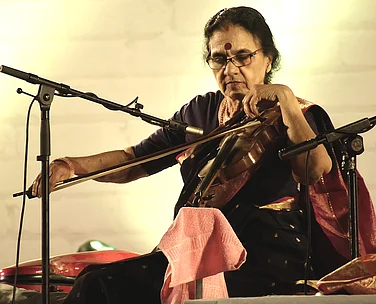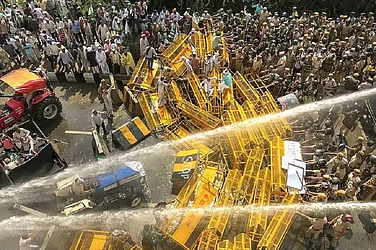Quattrocchi was arrested on the morning of December 19 from his office in downtown Kuala Lumpur. The charges pressed against him didn't ever mention Bofors and vaguely talked of "offences allegedly committed in India". Quattrocchi's lawyer, Muhammad Shafee Abdullah, a highly respected Indian-Muslim lawyer, raised two preliminary objections in the sessions court: no details of the charges he faces in India had been furnished, nor proper documents about his client's extraditable offences. Quattrocchi, Abdullah argued, was not even given an explanation of the charges against him before the arrest.
The deputy public prosecutor, however, insisted the grounds of arrest were explained, but said nothing about the specific charges levelled against him. The sessions judge, Aktar Tahir, then ordered counsel and prosecution to be present for the next hearing on January 22 and released Quattrocchi on bail of RM 400,000 (Rs 50 lakh). Dr Cyrus Das, a leading member of the bar, held a watching brief for the Indian government.
Malaysia and India do not have an extradition treaty, but because they adhere to the Commonwealth extradition agreements, Quattrocchi can be extradited were the courts to allow it. But lawyers and diplomats say the seemingly hasty air around the arrest created misgivings about Quattrocchi becoming a victim of a political deal. "I am appalled that in the end, it was handled so clumsily," says one retired judge.
Since it's possible under Malaysian law to appeal against the sessions court judgement, it could be a while before Quattrocchi would run the risk of being sent to India. But his problem arises from the fact that the judiciary is perceived to have been politically neutered in a series of judgements relating to the conviction and jailing of the former deputy prime minister, Anwar Ibrahim, now serving 15 years in jail for sodomy and corruption. The Indian government, by acting now, could face a stink if, as expected, Quattrocchi mounts a judicial offensive.
Indian officials liaised with Malaysia for a couple of years to have Quattrocchi extradited. His arrest now does suggest that it might have been a political decision. Vajpayee is due to visit Malaysia early February. With premier Mahathir Mohammed in trouble since he sacked and jailed his erstwhile deputy, Anwar Ibrahim, his support amongst the Malays, the main political group in the country, has eroded. Few foreign leaders come here on official visits, due partly to Mahathir's hectoring attacks on the West. Quattrocchi could have been arrested to remove one more irritant in Indo-Malaysia ties,says one prominent politician from the ruling National Front coalition.
Political compulsions apart, the decision to arrest Quattrocchi is intriguing. That the charges were poorly framed, even more so. He is popular in Kuala Lumpur's social circles. He lives with his wife in a beautiful house with a sprawling garden in the upper class area of U Thant at Langgak Golf (Golf Links) Road. His house faces those of the ambassadors of Japan, the United States, Netherlands and the high commissioners of Britain and Canada. Further down the road is the residence of Tengku Razaleigh Hamzaha who could be, if his political stars are bright, prime minister.
No wonder Quattrocchi assumed he was immune from arrest. But on the several occasions this correspondent talked to him, he did not discount the possibility that when the stars turn he could well be in a predicament, the kind he is now in. But he has always insisted that he is pilloried because of India's politics. His crime, he said once, is that he is close to the Rajiv Gandhi family, and, as a businessman in India, had represented high-profile companies, including Bofors. He represents other companies now in Malaysia. But it is doubtful if the extradition hearing would be completed before Vajpayee comes calling here.


























